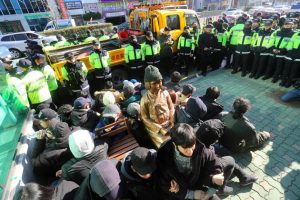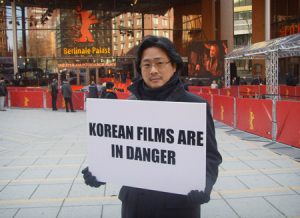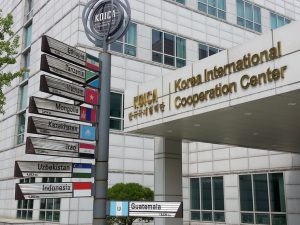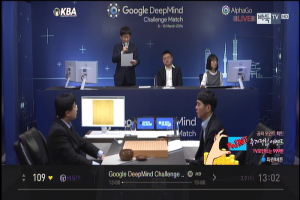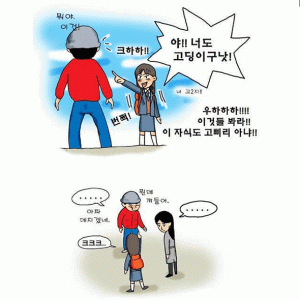Unfit for Broadcast: The Censorship of K-pop Girl Groups
Memo #401 By: Azalea Lee – azalea [at] mail.ubc.ca With new K-pop girl groups debuting on a seemingly monthly basis, differentiation between groups is often attempted by pushing the sexual envelope—skirts are getting shorter, lyrics are becoming more suggestive, and choreography more risqué. This overexposure is often flagged and ultimately censored by the organizations that […]
More than Sports: Politics in the Origins of the Professional Baseball League in South Korea
Memo #399 By: Jinsung Kim – mitol8274 [at] gmail.com The KBO (Korean Baseball Organization), South Korea’s professional baseball league, has grown both quantitatively and qualitatively since its establishment in 1982. Some 7 million domestic fans attended games in 2016, while the Korean national team’s victories at the 2008 Beijing Olympic Games and the 2015 WBSC Premier12 attracted […]
Why is the ‘Comfort Women’ dispute a never-ending story?
Memo #394 By: Ji Young Kim – jiyoungkim333 [at] gmail.com and Jeyong Sohn – sohn [at] rikkyo.ac.jp On December 28, 2015, the “comfort women” problem, one of the major stumbling blocks in Japan-South Korea relations, seemed to have been resolved through a governmental agreement between the two countries. Despite its characterization as a “final and […]
Multicultural Policy in South Korea and its Implications for Social Inclusion of Multiethnic Youth
Memo #391 By: Léo-Thomas Brylowski – ltbrylowski [at] gmail.com A record number of children born from mixed marriages are starting to make their way through South Korea’s public schooling system since the country’s multicultural turn in 2007. These children represented less than 0.5% of all students enrolled in Korean public schools in 2010, but are […]
Subsidies and the Film Industry: Lessons from France and South Korea
Memo #390 By: Patrick Messerlin – patrick.messerlin [at] gmail.com and Jimmyn Parc – jimmynparc [at] gmail.com With the continued dominance of Hollywood films around the world, policy makers in Asia and elsewhere are increasingly considering government subsidies as a major fuel for strengthening their national film industries. However, the true effectiveness of subsidies on […]
Why should we care about transnational social capital in development cooperation?
Memo #386 By: Rennie J. Moon – rennie.moon [at] yonsei.ac.kr and Gi-Wook Shin – gwshin [at] stanford.edu Higher education aid as transnational social capital Current approaches to higher education aid have focused either on developing human resources or on building social capital in the local context. For instance, donor countries offer various programs to train […]
New Veto Player in Town: The 20th South Korean National Assembly Elections
Memo #376 By: Hyung Gu Lynn – hlynn [at] mail.ubc.ca Perhaps the most unexpected result of the South Korean National Assembly Elections of April 13 was the emergence of Ahn Cheol-Soo’s People’s Party (PP) as not just a viable but significant third party (38 out of 300 seats; 26.7% of the popular vote). How did the […]
Hope or Worry for the Future? Google DeepMind’s AlphaGo vs. Lee Sedol in Seoul
Memo #368 By: Hyung Gu Lynn – hlynn [at] mail.ubc.ca If humans lose against artificial intelligence (AI) in a complex two-player game, is this a cause for hope or worry? The answer is – both. Currently battling in Seoul, South Korea, Google DeepMind’s AlphaGo, the powerful AI, is up 2-0 against Lee Sedol, the most decorated […]
South Korean webtoons: challenges of translating the domestic to the global
Memo #366 By:Hyung Gu Lynn – hlynn [at] mail.ubc.ca South Korean webtoons have grown rapidly since their launch in the early 2000s, with over 6 million individual readers accessing platforms per day in the domestic market. Since 2014, major Korean webtoons platforms have been providing access to translated versions of select titles in the hopes of […]
Translating Korean Webtoons: An Interview with Bruce and Ju-Chan Fulton
Memo #365 By: Bruce and Ju-Chan Fulton – Bruce.Fulton [at] ubc.ca and ju.chan.fulton [at] gmail.com With a domestic market estimated at well over 6 million individual readers per day and valued at over $300 million in 2015, South Korean webtoons have grown rapidly in scale and variety since their initial appearance on major search portal landing pages in the […]


